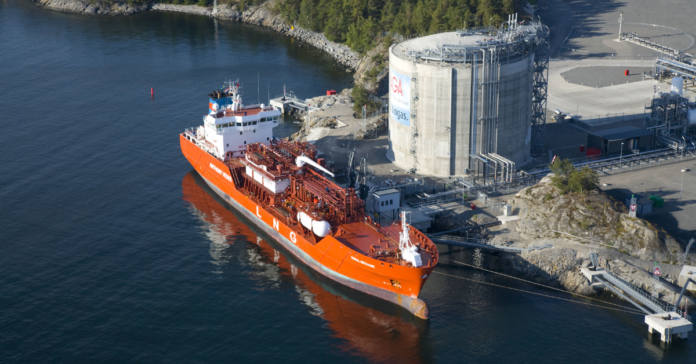Western energy producers scored a win on Monday when the US Department of Energy issued a final order authorizing the export of liquefied natural gas (LNG) from the Jordan Cove LNG Terminal (Jordan Cove) in Coos Bay, Oregon.
Jordan Cove will be the first LNG export facility built on the West Coast and will link Western gas producers with new markets in Asia.
“[The] export authorization for Jordan Cove, the first U.S West Coast LNG project, will ease access to further position the U.S. as a top supplier of LNG around the world,” said Secretary Brouillette on Monday.
“Today’s issuance to Jordan Cove serves to further expand opportunities for U.S. LNG abroad, particularly in the growing markets of Asia, and encapsulates what the Trump Administration has been working hard on for the past three years – providing reliable, affordable, and cleaner-burning natural gas to our allies around the world.”
While the Jordan Cove terminal project has completed the federal approval process, hurdles at the state level still need to cleared. The Oregon Department of Environmental Quality last spring refused to certify the proposed.
The project would enable the export of up to 1.08 billion cubic feet per day of natural gas, linking producers in the American west and Canada to new markets around the world, something that is of added importance as the industry tries to recover from the impacts of the coronavirus pandemic and associated economic downturn.
“As we work to overcome the COVID-19 pandemic, LNG exports are going to be one of the building blocks toward the United States’ economic recovery,” said DOE’s Assistant Secretary for Fossil Energy Steven Winberg.
“The U.S. has exported LNG to 38 countries, with this authorization to Jordan Cove, the United States can look to increase that number with expanded geographic coverage for LNG exports into key importing markets in Asia, providing enhanced economic opportunities both here in the U.S. and globally.”
Construction of the Jordan Cove Terminal and the associated Pacific Connector Pipeline would create more than 6,000 jobs during peak construction and has the potential to generate up to $100 million in annual state and local tax revenues.
Jordan Cove’s approval from the Department of Energy comes after years of work from a coalition of Western leaders, including Colorado Senators Michael Bennet and Cory Gardner, Wyoming Gov. Mark Gordon, and numerous other local, state, and federal officials.
While the project has passed through different iterations, an initial proposal was submitted to the Federal Energy Regulatory Committee (FERC) in 2007. In 2016, under the Obama administration, the project was rejected and later sought the approval of an entirely new application.
The project was approved by the Federal Energy Regulatory Commission (FERC) in mid-March. In late May, a group of Oregon landowners and another group of environmentalist organizations sought review of FERC’s decision. The state of Oregon has also sought to stop the project by refusing to issue state water quality permits.
The Jordan Cove decision is a bright spot for industry that comes as pipelines face stricter scrutiny and outright resistance from environmentalists and regulators. On Monday, the U.S.
District Court for the District of Columbia ordered the Dakota Access Pipeline to be shut down and drained of oil by Aug. 5 because of violations of the National Environmental Policy Act (NEPA).
The DAPL announcement came just a few days after the announcement that the owners of the Atlantic Coast pipeline had abandoned construction of the project.
Democratic lawmakers, however, praised the DAPL and Atlantic Coast news, calling it a sign that America is on the cusp of an energy transformation.
“A more democratic, inclusive, sustainable energy economy is possible if we follow our laws and listen to the people our decisions impact the most,” said Raúl M. Grijalva (D-Ariz.), chairman of the House Natural Resources Committee.
“In the meantime, any company thinking of trying to repeat the playbook these companies used to cut corners and steamroll impacted families is now on notice.”

